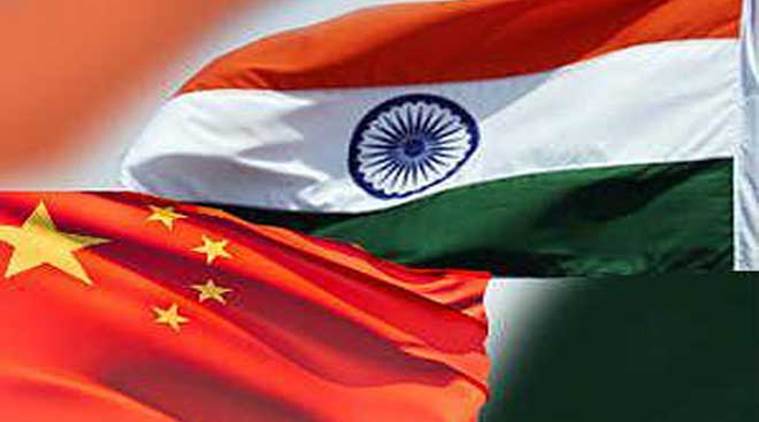- India
- International
Raja Mandala: The China reset
India is not alone in confronting the problems with Chinese power. But Delhi’s task is a lot more complicated.
 elhi’s problem, however, it is not with the idea of a reset that seeks prudent management of an important but complex relationship. (Picture for representational purpose)
elhi’s problem, however, it is not with the idea of a reset that seeks prudent management of an important but complex relationship. (Picture for representational purpose)
If the last two years turned to be rather contentious between India and China, Delhi is now trying to reset relations with Beijing. The optics of the reset, however, have generated both disappointment and welcome endorsement. Those who hailed India’s new political will to look China in the eye in 2017 are taken aback by what they see as a return to the perennial temptation to “appease China”.
After all, India had stared down the might of the PLA on the Doklam plateau at the trijunction of Bhutan, India and China last summer. The NDA government went public with a sharp criticism of President Xi Jinping’s ambitious Belt and Road Initiative. Delhi also embraced the Trump Administration’s concept of Indo-Pacific and revived the quadrilateral security dialogue with Washington, Tokyo and Canberra.
If surprise has turned into criticism of the reset at one end of the spectrum, there are many heralding it as a welcome course correction in India’s foreign policy. For them the events of 2017 are an aberration in the history of Sino-Indian relations. They would like to see the reset reinforcing the proposition that China is India’s “natural ally”.
Realists, however, might read India’s reset rather differently. They reject the fears of appeasement as a false alarm. Nor do they buy into the argument that a diplomatic reset alone will help address the new fundamentals of the India-China relationship. For them, the reset is part of a much-needed political effort to bring down the rising temperature in bilateral relations.
Realists believe that India’s current difficulties with China are structural and unlikely to ease in the near term. They point to the fact that the problems between the two countries have become increasingly intractable in recent years. The talks on resolving the boundary dispute have been stalled for more than a decade. And as the two armed forces operate closer to the long and disputed frontier, they run into each other quite frequently. On the economic front, the trade deficit in favour of China continues to grow and at $52 billion in 2017 it constitutes nearly half of the gap between India’s imports and exports.

Within the region, China’s deepening ties with Pakistan and its growing economic and military penetration into the Subcontinent and the Indian Ocean are making India increasingly anxious and laying the foundation for prolonged friction between the two Asian giants.
For long years, India has bet that whatever the problems on the bilateral front, there is room for significant international cooperation with China. That proposition, however, was significantly dented in the last two years. Do note Beijing’s active blocking of India’s effort to secure membership of the Nuclear Suppliers Group. China also remains the only major power that does not support India’s claim for a permanent seat in the UN Security Council.
The overarching reality is that China’s absolute and relative power vis a vis India (and all other powers in the world) has dramatically risen, thanks to decades of economic reform and sustained high growth rates. Consider, for example, the following: China’s GDP ($12 trillion) is nearly five times that of India and its defence expenditure at $150 billion is three times larger than that of India. This huge power differential in favour of China, Beijing’s growing global reach and expanding international influence mean Beijing has fewer reasons than before to accommodate India’s concerns.
That leaves India with a complex set of policy imperatives that are at odds with each other. Delhi must strive to retain its strategic space amid the expansion of the Chinese footprint and at the same time avoid the escalation of differences into disputes. Any reset would necessarily include an effort to widen the areas of cooperation that will provide some balance against the many negative factors that are unsettling bilateral relations.
Delhi, for example, is deploying considerable resources to compete with Beijing in economic and military diplomacy in India’s neighbourhood. It is also building strategic partnerships with other powers. At the same time, as we saw in Doklam, Delhi is learning to avoid a public argument with China and finding ways to limit conflict. Even as it joins the quad, Delhi tries to engage with China in various multilateral forums including the BRICS and the Shanghai Cooperation Organisation and keep alive all bilateral channels of communication.
India, by no means, is alone in confronting the problems with Chinese power. All major nations are struggling to come to terms with it. As a larger country sharing a disputed border and an overlapping periphery, India’s task is a lot more complicated. Delhi’s problem, however, it is not with the idea of a reset that seeks prudent management of an important but complex relationship. It has only, in part, been about the inability to shape the political narrative about the reset and the messiness in handling the Tibet question. In the end, though, a diplomatic reset can’t overcome the larger policy failures on closing the widening power gap with China.
EXPRESS OPINION
More Explained
Apr 19: Latest News
- 01
- 02
- 03
- 04
- 05









































